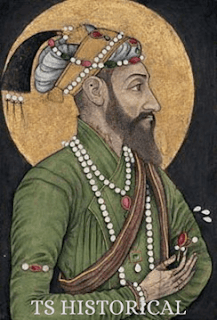History of Byzantine Empire
Rise and Fall of the Byzantine Empire
The Byzantine Empire is one of the most influential empires of all time. It was a major center of Christian faith, political power, and art during its time. It is sometimes referred to as the ‘Empire of the Greeks’ due to the Greek origin of many of its ruling class and population.
The empire was founded by the Greek-speaking eastern half of the Roman Empire
following the fall of Rome in constant civil war from the 3rd century onward.
The empire lasted for more than a millennium, until it was conquered by what
would later become known as the Ottoman Empire in 1453 AD. If you are
interested to know how this empire got its name, where it stood historically,
and what it believed in, read further!
History
The Byzantine Empire is an intriguing case study of a regional power
becoming a superpower. Founded by Constantine the Great in the fourth century
AD, it experienced remarkable growth and prominence, becoming one of the most
powerful empires of its time. It was marked by constant political intrigue and
by a strong military and economic influence over its neighbors. The empire was
eventually conquered by the Ottoman Turks in 1453 AD. The empire has left a
lasting legacy, as evidenced by art, literature, and architecture it produced
during its reign as one of history’s leading powers.
The empire is also notable as an example of how a regional power can grow to
become a global superpower. This is because it exhibited many of the hallmarks
of world dominance that would later be seen in the West: it built an empire by
conquest, it was able to survive outside of its traditional geographical
boundaries for lengthy periods of time, it implemented new ideas and practices
from abroad, and it expanded through trade networks as well as military might.
As such, it is an important case study in how a regional power can rise to
global prominence.
How was the Byzantine Empire different from the Roman Empire?
The Byzantine Empire was a major power in the Mediterranean region for more
than a thousand years, from the fourth century to the empire’s conquest by the
Ottoman Turks in 1453. The empire was founded by emperor Constantine the Great
in the fourth century AD and its capital was Constantinople. The empire was
characterized by its cosmopolitan nature, as it allowed for a diversity of
cultures to coexist. The empire’s decline began in the 11th century with the
Seljuk Turks, and it eventually fell to the Ottoman Turks in 1453. Despite
being one of history’s most influential empires, it is often overshadowed by
other notable imperial powers such as those of Ancient Rome and China.
How did the Byzantine Empire get its name?
The Byzantine Empire was one of the most powerful empires of its time, with
a history spanning more than half a millennia. It was founded by the Greek
explorer and empire builder, Constantine the Great, in the 4th century AD.
Under his reign, the empire embraced Christianity and became one of the most
influential states in western civilization. By the 6th century AD, it had
expanded to include much of eastern Europe, North Africa, and parts of Asia.
The Byzantine Empire continued to flourish until it ultimately fell to the
conquest by the Muslim empire in the 7th century AD. Despite its impressive
history, it is known for its art, architecture, and literature that have had a
significant impact on modern civilization.
Did the Byzantine Empire practice Christianity?
The Byzantine Empire was one of the most powerful and influential empires in
history. It enjoyed a period of stability, prosperity, and art during its peak.
Its legacy includes some of the most iconic architecture and art in the world,
including the Hagia Sophia basilica in Istanbul, Turkey. As it is often argued,
it is difficult to determine whether the empire practiced Christianity as it is
sometimes claimed or not. Some scholars believe that it did practice
Christianity while others argue that it was more complex than that. Regardless
of the case, its influence is still evident today as it helped shape global
history and culture.
Constantinople
The Byzantine Empire was one of the most
powerful empires of its time. It reached its zenith in the 11th century, but it
later fell to the Ottoman Turks. The empire's influence on medieval European
civilization is still felt today, as its art, architecture, and literature have
had a lasting impact on the world.
The Byzantine Empire was a major source of inspiration for western
civilization. Its art and architecture were heavily influenced by european
trends, while its literary tradition was highly regarded by writers such as
Dante Alighieri and Geoffrey Chaucer. Its empire also played a vital role in
the religious and cultural development of eastern Europe. The empire's
stability and prosperity contributed to the flourishing of science, philosophy,
and art in the western world.
Conclusion
The empire of Byzantium is well-known as the eastern half of the Roman
Empire. The empire was founded by Greek settlers and ruled by a succession of
Eastern Roman emperors for nearly 1,000 years. It was eventually conquered by the
Ottoman Turks in 1453 A.D., bringing an end to over one thousand years of
empire and cultural legacy. The empire had a significant impact on the history
of art, architecture, philosophy, and law during its reign as it spanned across
much of Europe, the Middle East, and North Africa. While it is often viewed as
a temporary conquest by some historians, it is just as likely that it would
have lasted longer if it were not for constant invasions by outsiders. Besides
being very wealthy, the empire is also credited with preserving ancient
knowledge and allowing for new innovations to spread throughout its
territories.
Read more:- Byzantine Empire



Comments
Post a Comment